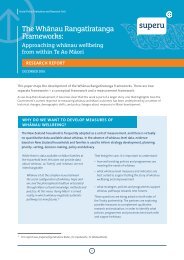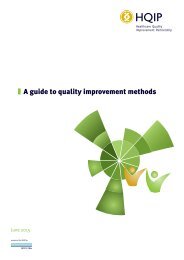2fyY1Py
2fyY1Py
2fyY1Py
Create successful ePaper yourself
Turn your PDF publications into a flip-book with our unique Google optimized e-Paper software.
Regulatory agencies for media and communications, competition and consumer protection and data protection<br />
In addition to national and supra-national legislation and regulation, a number of national and federal regulatory agencies<br />
cover the various practices during the life cycle of content production and communication in digital advertising. Examples of<br />
regulatory agencies that might oversee digital marketing of HFSS to children and enforce compliance are:<br />
• national media and communications agencies (e.g. United Kingdom Office of Communications (278), the Dutch<br />
Commissariat voor de Media (279) and the Australian Communications and Media Authority (280)) that have the power<br />
to impose penalties for violations of national communication legislation;<br />
•<br />
national agencies for competition and consumer protection (e.g. United Kingdom Competitions and Markets Authority<br />
(281) and the US Federal Trade Commission (282)) that have the power to regulate the content of digital advertising<br />
through national consumer protection legislation; and<br />
• data protection authorities and privacy commissioners (e.g. the French Commission nationale Informatique et Libertés<br />
(283) and the Office of the Australian Information Commissioner (280)) that have the power to impose fines on data<br />
controllers for data breaches or other violations of data protection legislation.<br />
The regulatory enforcement power of these national agencies (including imposition of sanctions) is limited to their<br />
jurisdiction, and they do not have a mandate to impose sanctions or fines at the international level. These agencies can<br />
and do, however, cooperate at international level (e.g. the International Competition Network and the Global Privacy<br />
Enforcement Network) to share experiences and build capacity. Furthermore, there appears to be political will to extend<br />
their jurisdictional reach. For example, currently, businesses have to deal with many different data protection authorities<br />
in the European Union, but a “one-stop-shop” mechanism has been introduced under the new GDPR, in which one lead<br />
national regulatory data protection authority will supervise all the processing activities of particular businesses throughout<br />
the European Union (Articles 46–55 of the GDPR). In practice, this means that Internet platforms that process the personal<br />
data of European Union citizens would establish a relation with one national data protection authority (e.g. Facebook or<br />
Google with the Irish Data Protection Authority), which would oversee all its data processing activities throughout the<br />
European Union, not just in that particular Member State. This is a possible model for a supra-national mechanism for<br />
regulating HFSS digital marketing to children. There may be some uncertainty until 2018, given the ruling by the Belgian<br />
Court of Appeal in 2016 that Belgium does not have the authority to regulate Facebook because Facebook’s European base<br />
of operations is in Dublin, Ireland (253).<br />
Key components of effective policies<br />
As the digital environment continues to evolve rapidly, digital HFSS marketing to children deserves close scrutiny and<br />
demands prompt, remedial action by policy-makers. In the light of obligations under the United Nations Convention on the<br />
Rights of the Child (2) and the WHO set of recommendations (35), we make the following recommendations for acting on<br />
digital HFSS marketing to children online.<br />
1. Acknowledge States’ duty to protect children online with statutory regulation<br />
Regulation of HFSS marketing to children should be independent of HFSS food producers and of the advertising and media<br />
industries. Statutory regulation is a recognition of States’ duty to protect the rights of children online, including their right<br />
to health, as spelt out in the United Nations Convention on the Rights of the Child (2) and the United Nations Human Rights<br />
Council Consensus resolution on the promotion, protection and enjoyment of human rights on the Internet (246). Special<br />
protection for children online has been integrated into statutory regulation in COPPA (78) and the new European Union<br />
GDPR (253), among others, and we see no reason why digital marketing of HFSS could not be similarly addressed, thereby<br />
acknowledging States’ duty to protect children.<br />
28






